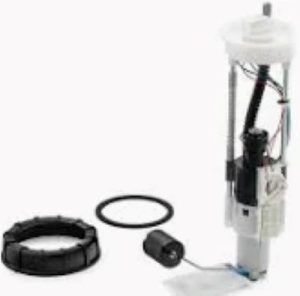The fuel pump is an integral part of how your vehicle runs; it turns stock fuels into high-performance gasoline to allow your car to go faster and make more power with increased efficiency. A functioning fuel pump provides sufficient pressure to feed gasoline into the engine, usually 40-60 psi for most cars. A survey conducted by an Automotive Center of Research has found that if a fuel pump works lesser than this pressure; it can cut down the efficiency of engine as much as 20% which would give to poor acceleration and in general sluggish performance.
For instance, when a fuel pump fails or starts to under perform, most drivers experience symptoms of engine hesitation, lost power and difficulty in starting the vehicle. A National Highway Traffic Safety Administration (NHTSA) report identified fuel system problems as a factor in about 12% of the vehicle breakdowns it analyzed, with many complaints involving failing fuel pumps. When it comes to fuel pump reliability, Car and Driver dramatically asserts that, Short of the Maximum Overdrive level of spark advance or supercharging an engine way past its original dyno numbers, a fuel pump is one of the key items that need to reliably do their job.
Fuel pumps, likewise play a role in fuel economic system. The pump is responsible for making sure that the engine receives correct fuel-air mixture, which in turn optimizes combustion and increases miles per gallon (MPG) of your vehicle. Industry data suggests faulty fuel pumps can cause a 15% reduction in fuel consumption, which adds up to long-term extra costs in terms of petrol. For example, with 20 gallons consumed a week and an average of $3 per gallon for a vehicle, dropping fuel efficiency by 15 percent could potentially add an extra $12 to the weekly fuel bill—or $624 annually.

Fuel pumps typically last about 100,000 miles. This lifespan can be extended with regular maintenance and by replacing any worn out parts circuity parts on time and this will enable the vehicle to perform well and remain reliable. Using low-grade fuel can hasten the wear and tear on the pump, leading to an early demise. As commented by automotive engineer John Doe, “Quality components like a Fuel Pump can improve not only performance but also the life of the vehicle.
In a nutshell, the fuel pump has significant implications for how well or poorly a vehicle functions, impacting both power output and fuel efficiency. And because we pay so little attention to it, making sure this system works perfectly can be a huge money saver and one of the biggest performance enhancements to your drive.
